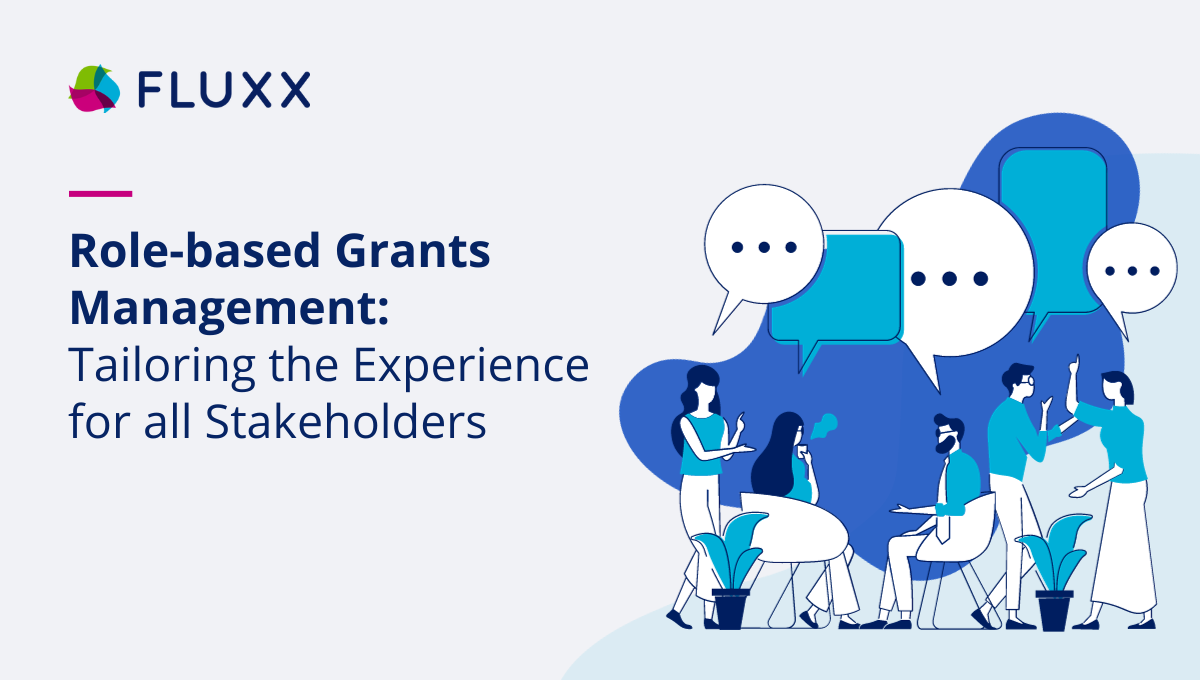
In the dynamic realm of grants management, technology stands as a cornerstone in streamlining operations and enriching the overall grant experience. Grants Management Systems (GMS) have evolved into indispensable tools for organizations looking to allocate resources efficiently and manage their grant processes seamlessly. However, as the complexity of these systems continues to grow, there's a compelling need to reevaluate conventional approaches to GMS selection. This article delves into role-based experiences within grants management and the transformative potential it offers based on the related whitepaper “7 Organizational Needs that Require Grants Management Technology.” We'll explore how adopting a role-based GMS can enhance the grant management experience and elevate an organization's efficiency and effectiveness.
The Challenge of Traditional Approaches
Conventional methods of GMS selection have often leaned heavily toward assessing the features and functionalities offered by the software. While features are undeniably important, such an approach sometimes results in a misalignment between the technology solution and the genuine needs of the organization. An excessive focus on features can lead to a GMS that fails to adequately serve the unique roles and responsibilities inherent to the grants management process. Thus, exploring alternative approaches that place organizational goals and requirements at the forefront becomes crucial.
Role-Based Experiences: A Game-Changer
Role-based experiences within GMS represent a paradigm shift in the world of grants management. Rather than adopting a one-size-fits-all approach, role-based GMS customize the user experience to align with the distinct responsibilities and objectives associated with various organizational roles. This approach acknowledges the diversity of roles and their corresponding unique tasks and requirements. By providing role-based experiences, organizations can bolster user satisfaction and drive grant management efficiency.
Enhancing Efficiency in Grant Operations
Efficiency is a core concern in grant operations. Role-based GMS systems optimize efficiency by offering tailor-made functionalities catering to different roles within the realm of grant management. For instance, a grants manager might require tools for assessing grant applications, while a finance manager might need budgeting and payment management features. Organizations can expedite processes and diminish operational redundancies by configuring the GMS to meet these specific needs.
Fostering Collaboration and Centralization
One of the significant benefits of role-based GMS is their ability to dismantle operational silos. Grantmaking is, by nature, a collaborative endeavor, and a GMS that reflects real-world collaboration is of paramount importance. A role-based GMS centralizes all grant-related activities, establishing a single workspace for everyone involved. This centralization streamlines operations and fosters a collaborative environment where all stakeholders can work together harmoniously.
Grantee Relationship Management (GRM)
An indispensable facet of grants management lies in building robust relationships with grantees. While traditional Customer Relationship Management (CRM) systems possess their merits, they often fall short in the context of grantmaking. Grantees necessitate a unique relationship management approach that emphasizes transparency, trust, and collaboration. Role-based GMS systems excel in this regard, providing grantees with a positive and transparent experience. This facet can significantly influence the long-term success of the organization's grant programs.
Data Visualization for Impact
Effective data visualization is integral to showcasing the impact of grant programs. Role-based GMS systems facilitate impactful data presentation tailored to specific roles. For instance, a program manager might require visualizations to track progress, while an executive may need visuals that underscore the overall impact of grant programs. Through data visualization, organizations can effectively communicate the value of their grant programs to various stakeholders.
Meaningful Connectivity
Connectivity within a GMS is of the utmost importance. A role-based GMS ensures that information is readily accessible without requiring users to switch between different tools or platforms. Moreover, meaningful integration with other critical systems bolsters connectivity across the organization. By ensuring that the correct information is accessible at the right time, a role-based GMS facilitates an efficient and transparent grants management process.
Flexibility and Control
Role-based GMS place the power in the hands of process owners. These individuals have the freedom and flexibility to tailor the technology to meet their unique needs. Empowering process owners ensures that the organization's technology solutions can adapt and evolve alongside their changing requirements. This flexibility ultimately promotes independence and long-term growth within the system.
Streamlining Administrative Tasks
Administrative tasks are an inherent part of grants management. Role-based GMS incorporate these tasks seamlessly into the platform, automating processes and providing data-driven tracking. This streamlining of administrative operations eliminates manual tasks such as document creation and data entry, leading to increased efficiency and reduced room for errors.
In conclusion, role-based experiences in grants management represent a fundamental shift in how organizations approach GMS selection. Customizing the GMS to suit the specific needs of diverse roles and responsibilities within the organization can improve efficiency, heightened collaboration, and more meaningful relationships with grantees. Organizations should prioritize personalization and efficiency in their GMS selection to remain adaptable and thrive within the ever-evolving grants management landscape.
We encourage organizations to assess their current grants management systems and consider the benefits of adopting a role-based approach. By embracing role-based GMS solutions, organizations can drive efficiency, enhance user satisfaction, and build stronger relationships with grantees. To learn more about role-based grants management solutions, such as Fluxx Grantmaker, explore the resources and tools available for making a meaningful impact in your grantmaking endeavors.